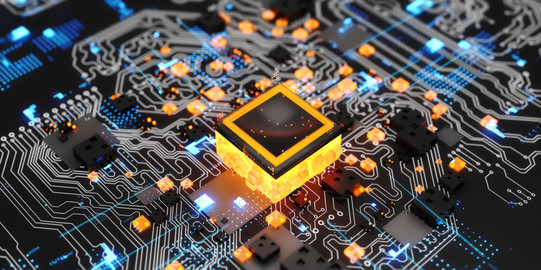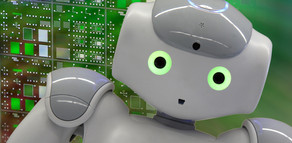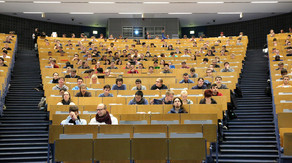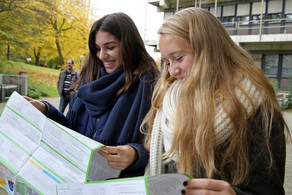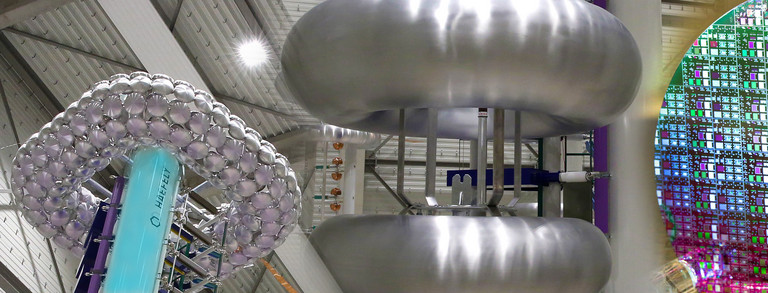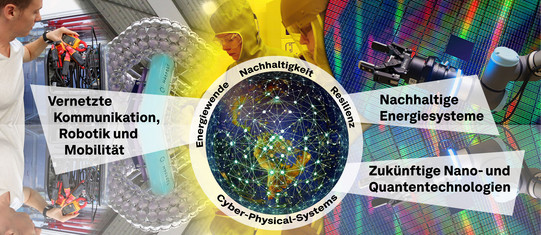Electrical engineering and information technology
In interdisciplinary cooperation with partners from science and industry, the EIT department conducts research into holistic methods for the resource-efficient and sustainable design of networked, reliable technical systems in hardware and software. It aims to make constructive and concrete contributions to addressing social challenges in the areas of "sustainable energy supply", "resilient infrastructures" and "demographic change".
Solutions for the major social challenges
In line with the UN Sustainable Development Goals and the EU's efforts in the context of the Green Deal, the Department of Electrical Engineering and Information Technology is committed to future-oriented areas such as
- the energy transition,
- resilient and resource-efficient digital infrastructures and
- overcoming the challenges of demographic change through technical assistance systems.
As digitalization continues to increase, electrical engineering and information technology (EIT) as an engineering science is driving innovation in almost all sectors and areas of life, such as energy, mobility, communication, the environment, logistics and production. From this, the department derives its special responsibility for the technical reliability of systems and critical infrastructures, for the efficient use of resources and for system design geared towards the requirements of future users. The department takes these aspects into account in its interdisciplinary research work, which always focuses on sustainability, reliability and resource efficiency.
The department achieves its high level of research through intensive national and international cooperation and through close cooperation with other departments at TU Dortmund University. The department is also heavily involved in joint projects with industrial companies and catalyzes structural change in the Ruhr region.
It stands for the unity of research and teaching and realizes a research-oriented curriculum that is constantly updated and aligned with the requirements of students and future employers in industry and academia. Flexible study options and practice-oriented components as well as a wide range of opportunities for further academic qualifications up to doctoral level ensure the supra-regional attractiveness of the courses on offer. The department is committed to continuously improving the supervision ratio. The program is aimed equally at national and international students.
Through cooperation in the UARuhr , the department realizes a comprehensive research and teaching portfolio that is unique in the field of electrical engineering and information technology in Germany, which also increasingly includes the application of AI and machine learning methods.
Based on the basic orientation of the department described above, the following overarching research initiatives are derived.
A - Sustainable energy systems
The scientific contributions to shaping the "energy transition" are currently a focus of the department through numerous projects. In addition to the increasing decentralization of energy supply , the department's research work takes into account the special challenges posed by electromobility as well as the use of high-voltage direct current transmission (HVDC ) for new power lines.
The close interdisciplinary cooperation between energy and communication technology (see also shear point B) is a particularly unique feature of the department. The focus on "Sustainable Energy Systems" is anchored in various cross-faculty and cross-university initiatives, e.g. in the UARuhr competence field on "Energy System Transformation" initiated and led by the department or the HVDC testing infrastructure.
The following professorships contribute in particular to the focus area "Sustainable Energy Systems":
- Energy systems and energy economics
- Energy conversion
- High-voltage technology
- Energy efficiency
- On-board systems
- Sensors
- Communication networks
B - Networked communication, robotics and mobility
In the third decade of the 21st century, cyber-physical systems are a technical reality in various fields of application due to the steady increase in digital networking, e.g. in the areas of energy supply (see focus A), assistance systems in the face of demographic change, transportation and mobility systems, smart cities and emergency services. Questions of real-time capability and resource efficiency, reliability and resilience, as well as the scalability of networked systems and the digital infrastructures used are becoming increasingly important. The ETIT department makes innovative contributions to this interdisciplinary research, starting with sensor technology and embedded systems through to control and information technology methods and communication aspects. The focus on "Networked Communication, Robotics and Mobility" is visible in various cross-faculty and cross-location activities, e.g. on future mobile communication systems (6G Hub), automated mobility and collaborative robotics .
The following professorships contribute in particular to the focus area "Networked Communication, Robotics and Mobility":
- Communication Networks
- Control system technology
- On-board systems
- Image signal processing
- High-frequency technology
- sensor technology
- data technology
- Data processing systems
- Embedded Systems
C - Future nano and quantum technologies
Since 2020, the field of quantum and nanotechnologies has been taken up, e.g. via quantum sensor technology and quantum computing, and is being developed into a further research focus together with photonics . The contributions from this area are part of various solutions for the areas of "energy transition", "resilient digital infrastructures" and "overcoming the challenges of demographic change through technical assistance systems".
The following professorships contribute in particular to the focus area "Future Nano and Quantum Technologies":
In addition to the focus areas mentioned above, the EIT department also addresses the use of machine learning methods and artificial intelligence. Building on its participation in TU Dortmund University's SFB 876, among other things, cooperation with the departments of Computer Science and Statistics, as well as Physics and Mechanical Engineering, is to be further expanded. The combination of EIT's core competencies of modeling and system-theoretical analysis with innovative machine learning methods is a key to the explainability of artificial intelligence, which in turn is a prerequisite for use in safety-critical systems at EIT.
All professorships in electrical engineering and information technology use AI and machine learning methods in one way or another:
Research work of the individual professorships
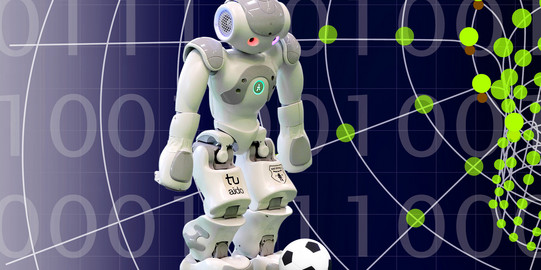
Data processing systems
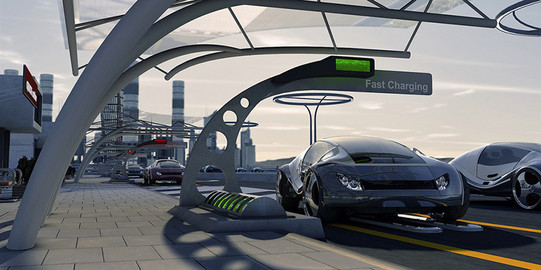
Energy conversion
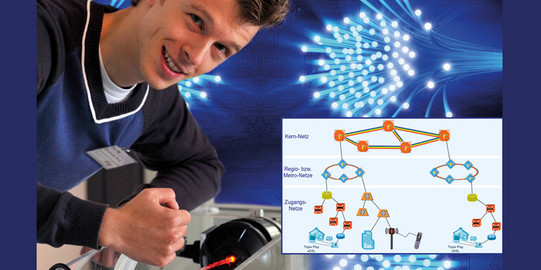
High frequency technology
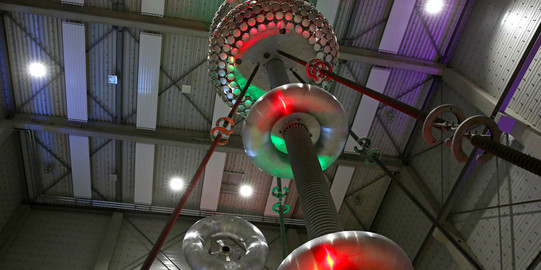
High voltage technology
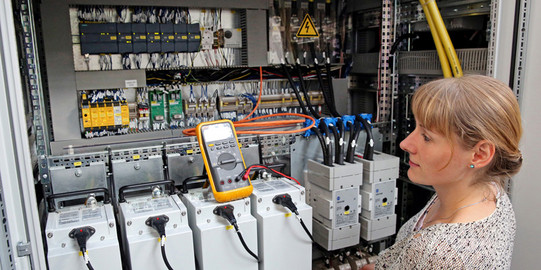
Institute ie³
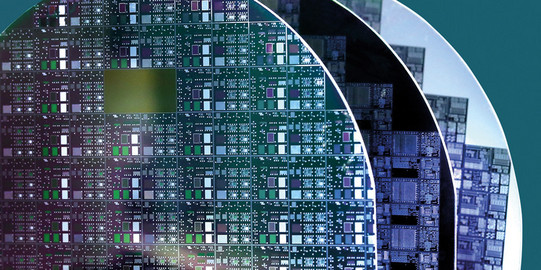
Micro- and nanoelectronics
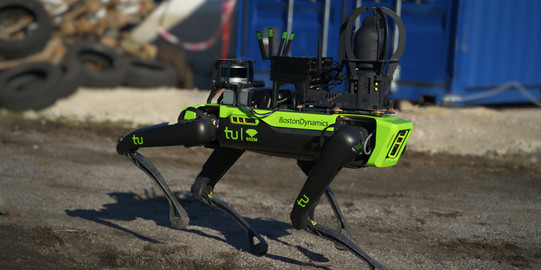
Communication networks
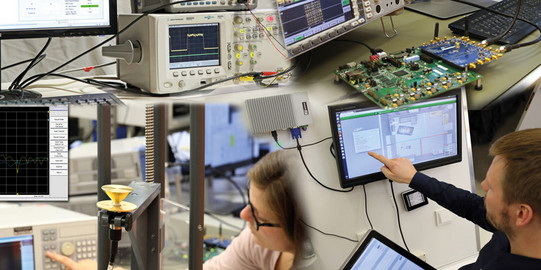
Communication technology
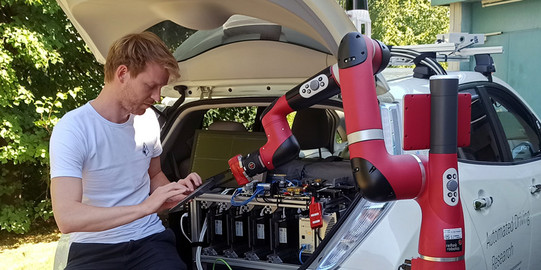
Control system technology
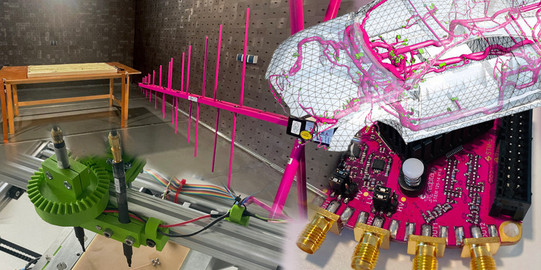
On-board systems
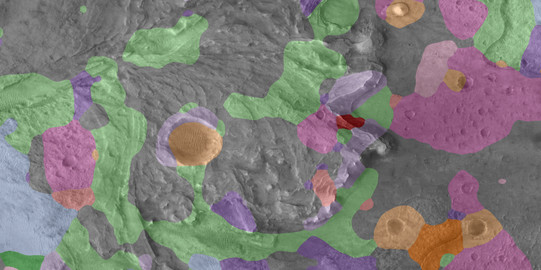
Image signal processing
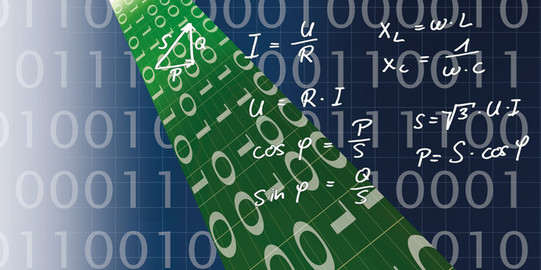
Data technology
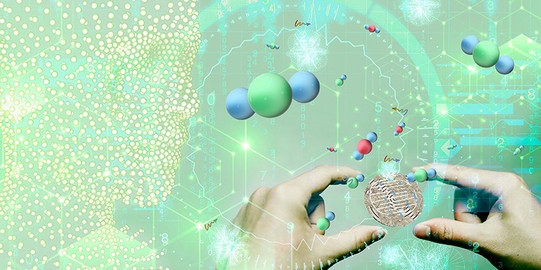
Sensors
